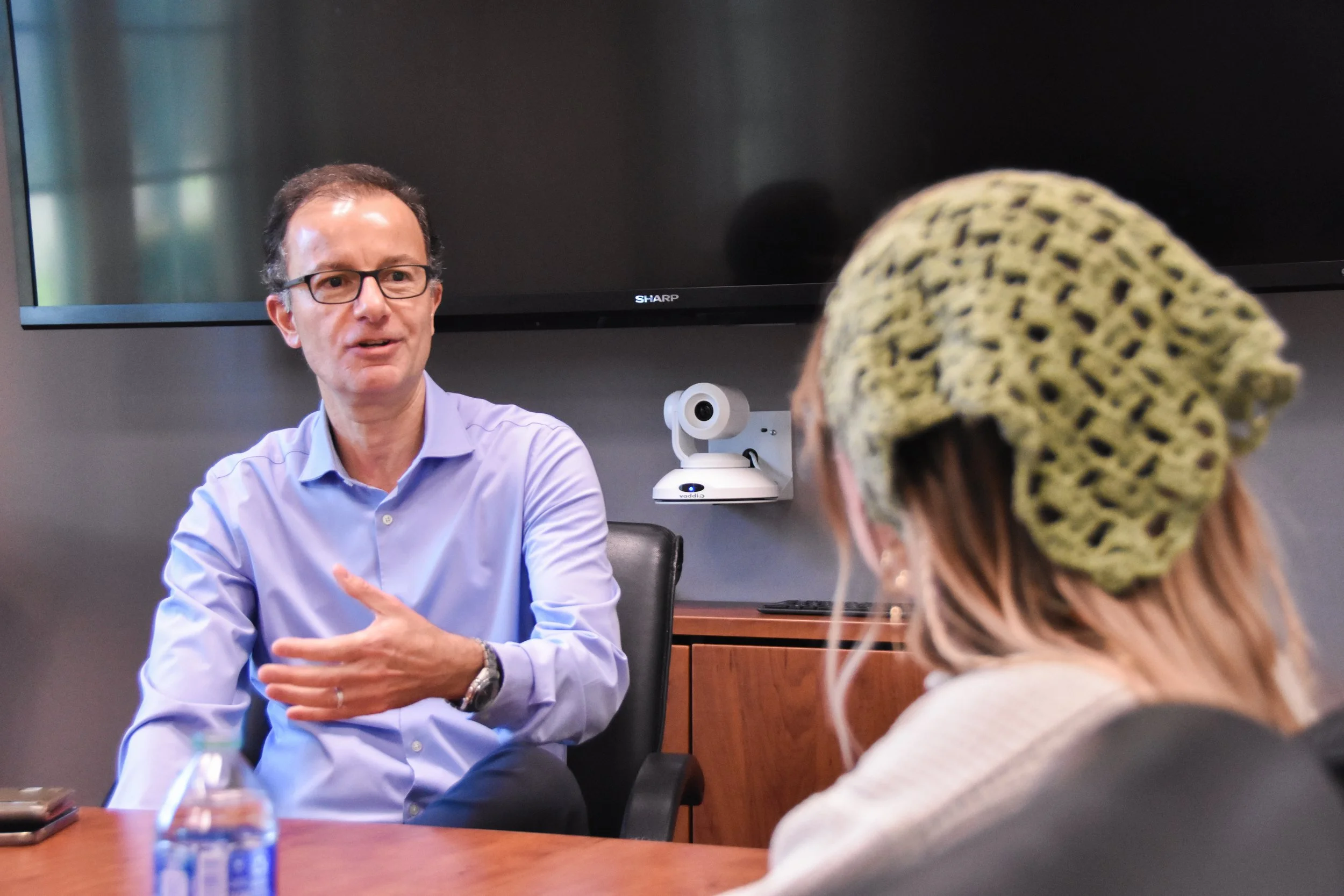New Vice President of Finance Speaks on Sustainability
Rhiannon Briggs: Julie Sullivan has referred to you as a values-based leader, and the work that you've done really speaks to that. How have you seen those values translating from your business background into Jesuit higher education, beginning at Seattle University, where you most recently worked?
Wilson Garone: There was a big transition going from for-profit to the nonprofit world that happened four years ago. It was really a career stage decision after being in the for-profit world for so many years. The opportunity to impact the lives of young adults who are transitioning from their lives on the academic side to the professional side is very much what I wanted to do.
What are your priorities in this role?
There are many. This is long-term work, where we invest a lot of time now, and we're going to get the benefits of it later. I really want to continue to be involved in that process. One of my priorities is to hire many of the open positions, especially my direct reports. I've been investing a lot of time in that since.
Another priority is to look at some of the processes we have and try to understand if there are opportunities for us to be a little bit more efficient. I've been working with the team on identifying some of these opportunities.
When you worked at Seattle University, they determined some of their environmental social governance (ESG) initiatives and then you got to continue that. How do you see our ESG fitting into Jesuit values here?
I think sustainability fits into the Jesuit values–it's part of a document created by Pope Francis, Laudato Si’, and there you can see that it fits very well. I think this university is making progress towards these goals as well. It's getting more organized about how to tackle all the goals, because there are many goals in the organization. But I see this Jesuit university as committed to Laudato Si’.
Do you think that there currently is any dissonance with previous investments that the university has made that align with the Laudato Si’?
About our endowment investments, I think there is good strategy and progress towards the transition of energy that is happening. I think overall the world is going through that process of transitioning away from fossil fuels and into alternative kinds of energy.
I think Santa Clara is very much aware of and following that process, making the right financial decisions and values decisions, which transition the portfolio into more alternative, different kinds of energy–more sustainable energy options than fossil.
The way that it's happening here is what we call a positive strategy, where you purposely put money into these companies or different kinds of emerging alternatives that are not carbon-based. Those investments are obviously going to grow over time and benefit the endowment of the university, which pays back a lot of the expenses. That is the strategy that the university is using, and I think it's working pretty well.
Are there any deadlines or goals you would like to enact for sustainability initiatives going forward?
I think we have made very good progress in this institution, including achieving carbon neutrality by buying carbon credit offsets. But then I think we are very limited in that we really depend on how the industry works.
Over time these things are going to get better.
So when you think about deadlines and timeline, I think we need to understand there are things that are more under our control and things where we depend on what is being offered. And I think there is disruption happening in the market related to the focus of sustainability in many industries.
I think that disruption is happening and it's just a matter of how fast can we disrupt all these industries to be more sustainable, and really have options where we all can comply with sustainable initiatives.
But obviously, we're going to focus on the things that we can control and hope the marketplace can take care of it.
Do you think there will be any pushback or difficulties achieving these goals?
I mean, there's always a financial pressure in any decision you make that has a cost associated with it. At the end of the day, the students are paying for the university and we want to make those decisions in a thoughtful way. But we are moving in the right direction.
